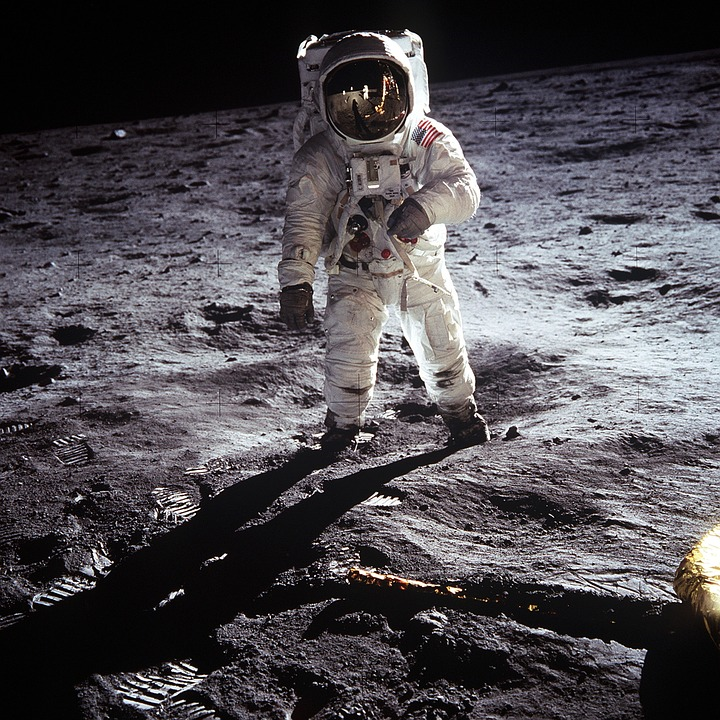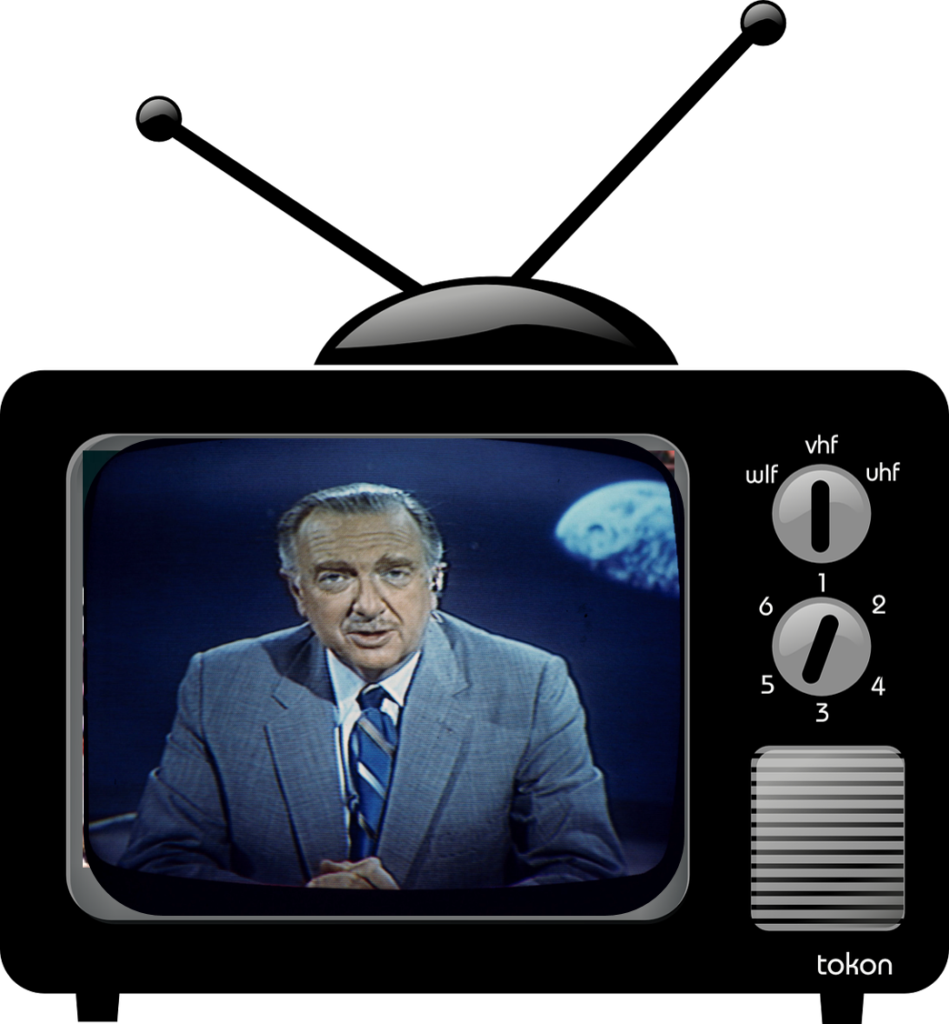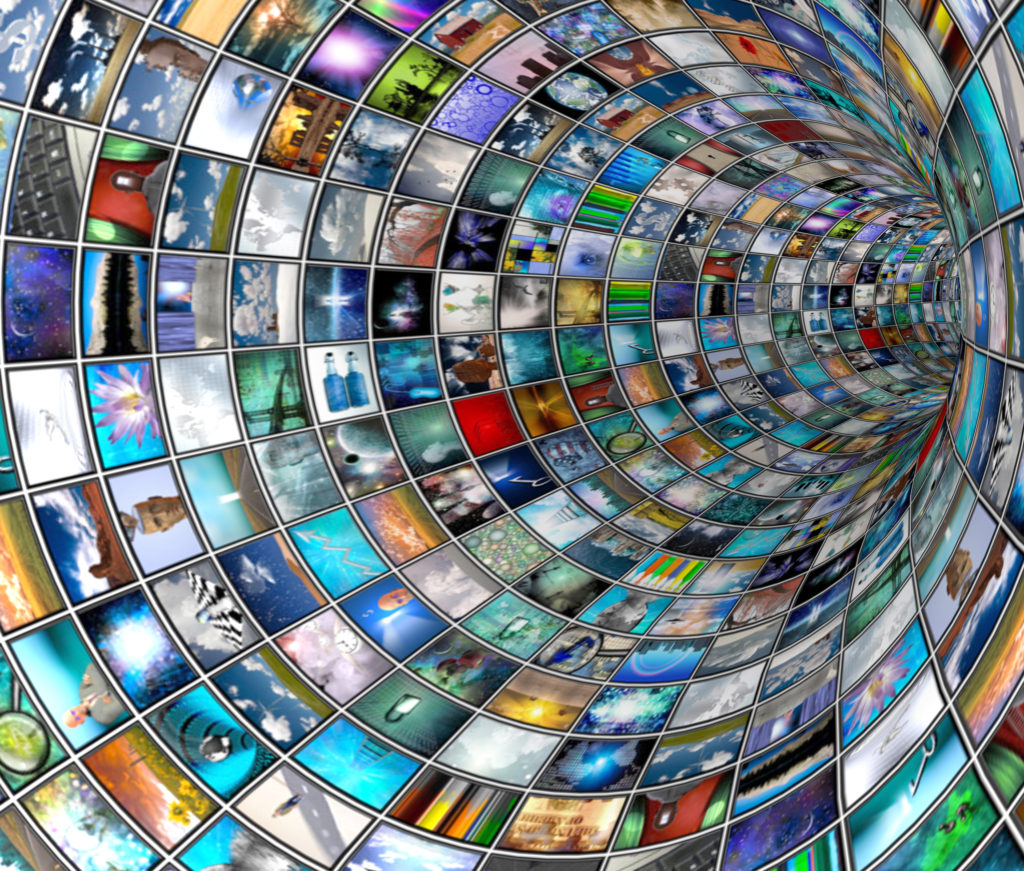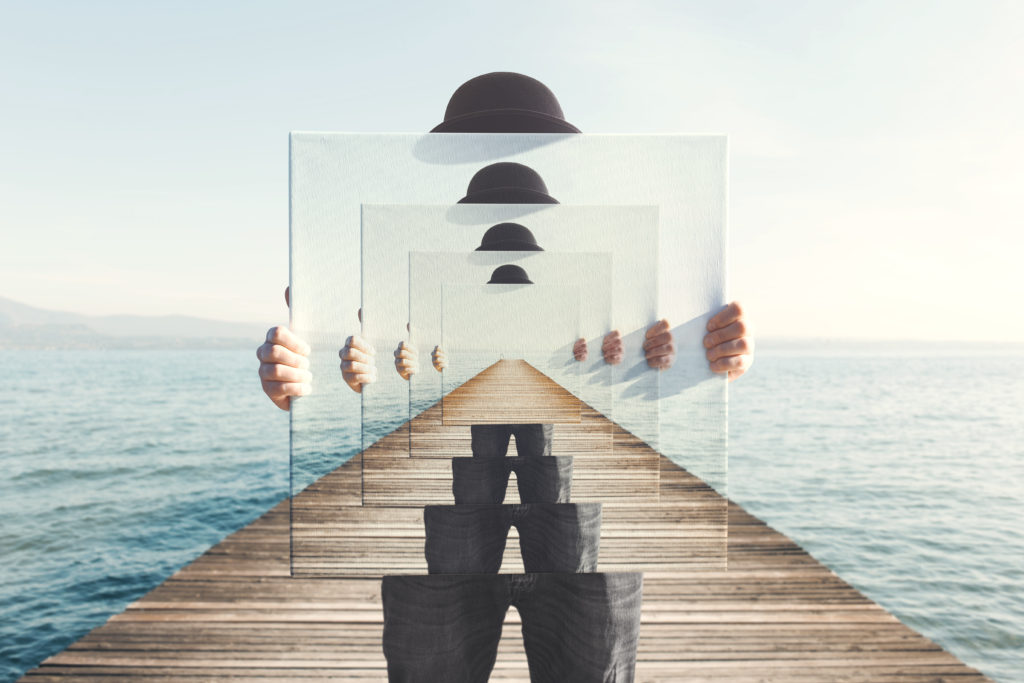
Tomorrow is a celebration of an American milestone. It marks the 50th anniversary of American’s setting foot on the moon. Not many of you reading this blog are old enough to remember this truly “shared” event – one that stopped the country on a summer weekend as we communally celebrated together. My math tells me you’d have to have been born before 1960 to truly recall this collective media experience.
And now an opinion piece by NBC News’ Ani Bundel – “The Apollo 11 moon landing was a moment of national unity because television made it so” – crystallized the simplicity of the media world five decades ago – and just how fragmented it is today.
Over the ensuing decades, America has gathered around televisions to watch horror shows – political assassinations, O.J.’s Bronco chase, and the stark tragedy that was 9/11.
The last time America had a true shared media celebration was watching the moon landing five decades ago. But it happened during a simpler time in the mass media world that would soon become more fragmented.
I remember the Bruce Springsteen song “57 Channels (And Nothing On)” released in 1992. Back then, 57 was a lot of channels. Today, it’s a “skinny bundle.”
Bundel points out the obvious truth – technology made it possible for America to collectively enjoy the moon landing. Hard as it is to believe, 93% of those watching TV that afternoon saw Neil Armstrong take those first footsteps on the lunar service. In New York City, it was 100% of all TVs tuned in were watching this amazing event.

And to a great degree, the country watched this momentous event through the eyes of the most popular news anchor of all time, CBS’s Walter Cronkite. It’s hard to describe his multi-generational appeal in today’s cable TV news environment.
Cronkite was trusted – not just by the adults of the day, but by all those Boomer kids protesting the Vietnam War and making rock n’ roll history at Woodstock. A Poynter story by his summer intern back in 1969, Mike Russo, is a great retelling of what it was like to watch it all happen from a very close perch. As Russo points out, nearly half of all those TVs were tuned to CBS and Walter Cronkite.
Perhaps the one thing everyone could agree on was that Walter Cronkite was “the man” – the quintessential guide who took the entire world with him on America’s perilous journey to the moon.
Imagine that happening today.
The moon landing became such a collective experience, it would serve as the launching pad for MTV a dozen years or so later. That iconic top-of-the-hour ID Bob Pittman put together was all about that mass appeal event (which he hoped would carry over to TV ratings). And later the “Moon Man” trophy became the icon of rock video excellence for the channel’s Video Music Awards.
While our technology is exponentially more advanced now, it has made it impossible for us to have this type of media societal moment. There’s simply too much content out there.
Hundreds of cable TV and satellite radio channels, a myriad of video streaming platforms offering thousands of shows series, and films, an infinite number of streaming “radio stations,” more than 700,000 podcasts, and video games of every size, shape, and variety.
Even social media has fragmented. There’s no longer a center of that universe.
Back in the ’60s and ’70s, we all discovered the same new music at pretty much the same time. Radio stations did the heavy lifting, turning on Americans to lots of great new songs and albums all in sync.
You could go to school, and everyone heard that new Supremes song that came out the day before.
Today, a group of co-workers can all talk about favorite television shows over coffee, except that several are watching series you’ve never heard of.
When it comes to music, the options are all over the map. Few songs reach a true mass appeal in listening or in sales because everyone’s listening to different stuff.

We’ve become our own programmers. And that’s not necessarily a good thing. We know what we want – except when we don’t.
The technology allows us to binge watch a TV series, create playlists, and even mix and match music, talk, and information to create “personalized radio.”
Our media choices and options are as fragmented as we are as people. In the same way the media created the drama around the moon landing back in 1969, today’s media splinters us in so many different factions, groups, sects, and cults.
In radio, we’re still executing fewer than 20 formats. And yet, people’s music tastes have become eclecticized, thanks in no small part to the invention of the iPod and the ability to be able to assemble playlists that were genre busters.
A handful of radio stations even in markets the size of New York and L.A. don’t have anywhere near the influence they once did – whether it’s providing information, being musical tastemakers, or playing the hits. And between belt tightening and playlist tightening, chasing meters and diaries, broadcast radio has painted itself into a strategic corner.
So, how can radio have impact in an environment of media excesses?
Some will say the ship has sailed. But in local environments, tech disruption has decimated TV stations and newspapers. Most have suffered from major cutbacks, staff reductions, or bankruptcy. And certainly in the case of newspapers, this trend will only continue.
Radio – whether we’re talking about spoken word or music stations – has the unique ability to be locally mass appeal, holding up the mirror to its community. “Live & local” has become a slogan, rather than a solution or a strategy.
The late Nick Michaels reminded us, “In the over-communicated world, a whisper becomes a scream.”

And he was right, of course. You don’t need to be the loudest, the biggest, or the most global. In fact, a local, welcoming place where people can go to be entertained and informed is what radio should aspire to be. Radio can be a companion, a mood enhancer, a co-worker, and a connection at a time when we increasingly distrust contact and worry about our privacy.
Tomorrow’s 50th anniversary of the Apollo 11 will bring back a flood of memories to some of us. For others, perhaps it will serve as a reminder that technology has fractured and divided us in the years since Neil Armstrong stepped on the surface of the moon. Our media landscape is so splintered, we have lost sight of how to appreciate the world without taking selfies.
No doubt about it. America (and other countries) will return to the lunar surface one day. But we won’t experience that moment in the same way we did back in 1969. We may watch it, but through a personal lens, selecting our network, our coverage, our commentators, and our format. Many of us will see it on-demand at a later point in time, watching it on phones, tablets, and computers. We will most certainly not experience it communally.
For radio, “one small step” toward reconnecting people with their communities – and themselves – would be a “giant leap” in the right direction – returning to what the medium meant to people decades ago.
Impossible? Maybe, it’s amazing how some of the most unlikeliest things continue to happen.
Thanks, Mike Stern.
- What To Do If Your Radio Station Goes Through A Midlife Crisis - April 25, 2025
- A 2020 Lesson?It Could All Be Gone In A Flash - April 24, 2025
- How AI Can Give Radio Personalities More…PERSONALITY - April 23, 2025




I am now looking for any opportunity and any reason to use the word “eclecticized” in my normal daily walkabout conversations with co-workers.
Yeah, I was feeling a little creative. Sometimes it’s fun to make up words.
The summer of ’69, four friends and I were returning to Montreal from one of our weekend racing trips. This week it was Bryar Motorsports Park in Louden NH. As we motored up the interstate to the border we had the radio tuned to WPTR Albany NY one of our favourite Top 40 stations. Between each song that evening the announcer updated the unfolding moon landing story. By the time we got to Champlain NY we decided to pull into a bar to watch the event. Fred you speak eloquently of a communal event. The bar was packed with locals, other highway travelers and 5 Canadian teenagers. We all watched in awe as Neil Armstrong stepped on the moon then celebrated as one. Smart local radio in the car connected us to the most incredible event in human history.
Amazing, isn’t it, Andrew? Those of us who were around for this event remember it vividly. We were gathered in my parent’s rec room to watch history being made. That said, it sounds like you have more fun than we did. And I’m betting your were watching Walter Cronkite. All the best.
Thank you, Andrew, for your account. That actually brought chills to me, imagining what an incredibly special moment that must have been for your and your companions–with radio providing the play-by-play until you could pull off the road and continue to celebrate the occasion as a community. Radio at its best.
Nick Michaels was more than right -a whisper becomes a scream if you’re whispering the right thing. It’s probably not “Light rock, less talk”. Just like pizza, radio’s formula should be the best things-in moderation. It seems “the best variety” means the best variety of the listeners’ favorite songs and broadcast radio did great when they found those songs and (think Todd Storz) played ’em. Today that formula still works and thrives with pleasant surprises thrown in. What’s missing is that part of the medium being part of those other “communal events”. There isn’t a moon landing every day, but there are always things that the city you’re in celebrates and we need to continually be part of them. I’m just sayin’. Thanks for the thoughts, Fred
Appreciate it, Dave, and your perspective. Yes, that formula still works.
When playing many 80’s songs these days, I think of those MTV days, also a great shared experience, at least for those of us of a certain age. MTV was the nation’s radio station. And yes I’m old enough go back to the other things you mentioned, being a child of the 60’s.
I agree, Mark. MTV was like “a new friend” in your life, while you still kept all your old radio friends–the people you loved and listened to and were part of your daily life. Sadly, both MTV and radio (for the most part) bear little resemblance to who they were when the video channel launched–and neither seem to have the impact they once did. Maybe there’s a lesson there for both.
Mark, you’re right that MTV was very communal at the beginning, so much so that when we heard many of those songs from the 80s, we think about the videos. Appreciate the comment.